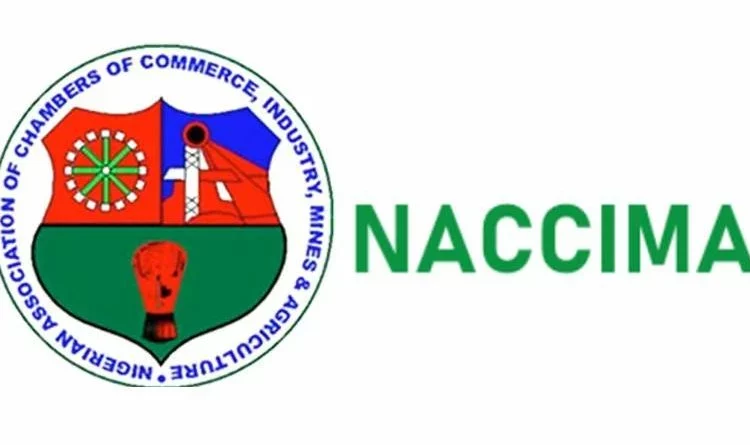Nigerian Association of Chambers of Commerce, Industry, Mines, and Agriculture (NACCIMA) has warned that Nigeria risks losing over $200 billion in foreign direct investments (FDI) from the country if the federal government’s implements the proposed tax reforms targeting tax imposition on Free Trade Zones (FTZs).
The chamber also warned that the decision could jeopardise more than 600,000 jobs prospects in the country.
The contentious provisions, outlined in the Nigeria Tax Bill 2024, seek to introduce minimum tax rates and remove long-standing tax exemptions for businesses operating within FTZs, a move seen as contradicting Nigeria’s industrialisation and investment objectives.
National president of NACCIMA, Dele Oye, in a strongly worded statement, expressed grave concern over the proposed amendments, particularly Sections 57, 60, 198(2), and 198(3), which threaten to dismantle key incentives that have sustained FTZ investments since the scheme was introduced through the Nigeria Export Processing Zones Act in 1992.
“Stripping away established tax exemptions is a drastic measure that will diminish investor confidence and jeopardise Nigeria’s standing in the global investment community,” said Oye, who is also the chairman of Nigeria’s Organised Private Sector (OPS).
Since the inception of the FTZ scheme in 1992 through the Nigeria Export Processing Zones Act, businesses operating in these zones have significantly contributed to Nigeria’s economic landscape.
With special tax incentives, these zones were designed to attract investment, promote job creation, and foster industrialization. Sections 8 and 18 of the NEPZA Act explicitly exempt approved enterprises from all federal, state, and government taxes, creating an attractive investment environment.
However, the proposed amendments in the Tax Bill, particularly Sections 57, 60, 198(2), and 198(3), directly contradict this framework by introducing minimum tax rates and eliminating existing exemptions that have been instrumental in attracting investments.
“It is imperative that we understand the potential ramifications of these proposed changes. Stripping away established tax exemptions is a drastic measure that will diminish investor confidence and jeopardise Nigeria’s standing in the global investment community,” Oye said.
According to NACCIMA, out of Nigeria’s 50 FTZs, 48 were developed through private-sector investments. The tax exemptions within these zones have been crucial in attracting investors, creating jobs, and generating over N650 billion in government revenue through customs duties and related economic activities.
A major point of contention is the lack of consultation with key stakeholders before the reforms were announced. According to NACCIMA, “The FTZs association and companies were not formally consulted prior the 20th February 2024, when the Chairman of the Fiscal policies and tax committee, Taiwo Oyedele, who as a panelist at the 3rd Nigerian Economic Zones Association conference informed the FTZ community of the intended substantial amendment of the rules and laws regulating investment in the FTZ.
“The provisions of the Nigeria Tax Bill 2024 could trigger capital flight, as companies may relocate to neighboring markets like Ghana and Angola, which boast friendlier investment climates. According to historical data compiled by the Nigeria Export Processing Zones Authority (NEPZA) and the Oil and Gas Export Free Zone Authority (OGFZA), Nigeria has seen over N650 billion generated for the government from these zones through various channels, including customs duties. The removal of established tax benefits will not only halt this revenue stream but will also have severe economic repercussions for the nation.
“For example, the proposed amendments to the NEPZA Act threaten the incentives that led to the successful establishment of notable Free Zones such as the Lagos Free Zone, where the Lekki Deep Sea Port operates as a vital maritime hub. The port’s recent achievements, including the docking of the largest container vessel in Nigerian history, underline the need to maintain an environment conducive to further investment and growth.”
He added, “Moreover, by compromising the FTZ incentives, Nigeria would likely fail to meet its broader economic diversification agenda. The FTZs not only stimulate job creation but also reinforce Nigeria’s position as a competitive player in the global market. In comparison, other nations such as the UAE offer zero corporate tax rates and robust support to ensure businesses thrive within their FTZs, presenting Nigeria with a clear example of what could be lost if these changes are implemented.
In response to the growing backlash, NACCIMA has urged the National Assembly to reconsider the proposed tax amendments, emphasizing the need for policies that encourage long-term investment rather than deter it.
“As NACCIMA, we urge the National Assembly to reassess the implications of the proposed Nigeria Tax Bill 2024 on the Free Trade Zone Scheme. The Bill represents a potential policy shift that could undermine decades of progress in attracting FDI and cultivating a dynamic, diversified economy. Protecting Nigeria’s FTZ framework is not just about retaining tax incentives, it’s about ensuring sustained economic growth, job creation, and enhancing Nigeria’s competitiveness on the global stage.
“We can see a major loss of investment, litigations and several Arbitrations between the Nigerian entities and their partners, banks and government agencies like the Nigerian Investment Promotion Commission, who in discharge of their duties may have granted several incentives, to induce the investment. While not asking the government to completely reverse the vehicle, the government can also delay the application of the proposed amendments, to enable the investors recoup their investments, and set a new financial and business model.
“This policy summersault through legislation is bound to shake everything Nigeria if not carefully handled, as it has already slowed down activities in the FTZs, while potential new investments are held,” Oye stated.
We’ve got the edge. Get real-time reports, breaking scoops, and exclusive angles delivered straight to your phone. Don’t settle for stale news. Join LEADERSHIP NEWS on WhatsApp for 24/7 updates →
Join Our WhatsApp Channel










